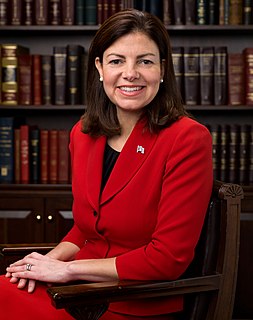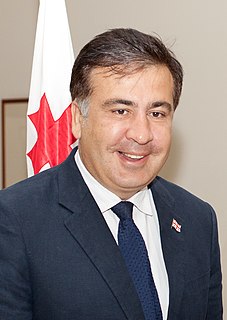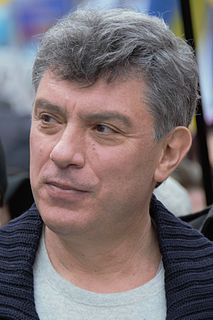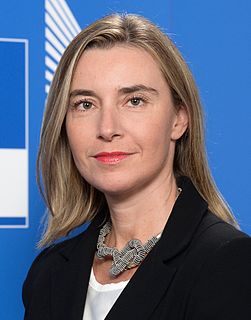A Quote by Kathleen Troia McFarland
Russia does not have a modern economy: it's a petro-power. The only thing it sells that the world wants to buy is oil and natural gas. When was the last time anyone bought a Russian computer? A Russian car? A Russian cell phone? Russia is so dependent on high energy prices that if oil falls below $100 a barrel, the Kremlin can't meet payroll.
Related Quotes
I am proud of Russia and I am sure that the vast majority of Russian citizens have great love and respect for their Motherland. We have much to be proud of: Russian culture and Russian history. We have every reason to believe in the future of our country. But we have no obsession that Russia must be a super power in the international arena. The only thing we do is protecting our vital interests.
High prices can be the result of speculation, and maybe plunging prices can be attributed to the end of speculation, but low prices over time aren't caused by speculation. That's oversupply, mainly by Saudi Arabia flooding the market with low-priced oil to discourage rival oil producers, whether it's Russian oil or American fracking.
Without Russia's contribution, prices would rise even more. Some members of the EU meet 90% of their demands for gas with the help of Russian hydrocarbons and have no complaints so far. Everybody is happy. Russia is a reliable partner and has never failed her partners in Europe, even in the hardest times of its economic development.
Vladimir Putin is a Russian czar. He's kind of a mix of Peter the Great and Stalin. He's got both in his veins. And he looks out first and foremost for the national security interests of Russia. He accepts that, in Eastern Europe, that is a Russian backyard, that is a Russian sphere of influence. Ukraine lives most uncomfortably and unhappily in a Russian backyard.
When we talk about the Far East we usually mean the Far East itself, including Primorye Territory, Khabarovsk Territory, Kamchatka, and Chukotka, as well as Eastern Siberia. All this area contains tremendous resources, including oil and gas, 90 percent of Russian tin, 30 percent of Russian gold, 35 percent of forest, 70 percent of Russia's fish is harvested in the local waters.
Then there is another area of activity - economic interaction between Russia and the United States. Right now, for example, it has already been made public that we signed a large deal to privatise one of our biggest oil and gas companies, Rosneft. We know for sure that US companies, as well as Japanese ones, by the way, are keenly interested in cooperation in Russia's oil and gas sector, in joint work. This has immense significance for world energy markets and will directly affect the whole world economy.
When you start to meet with ordinary people you understand that a Russian person, really any person from Russia, a Tatar, a Mordvin, a Chechen, a Dagestani, they are very open people, even a little naive. But there's one defining trait that probably all peoples have, although it comes out especially strongly in us. That's a drive toward fairness. It's one of the dominating, I think, traits in the mentality of a person from Russia, a Russian person.
Most British playwrights of my generation, as well as younger folks, apparently feel somewhat obliged to Russian literature - and not only those writing for theatres. Russian literature is part of the basic background knowledge for any writer. So there is nothing exceptional in the interest I had towards Russian literature and theatre. Frankly, I couldn't image what a culture would be like without sympathy towards Russian literature and Russia, whether we'd be talking about drama or Djagilev.
I understand why Vladimir Putin is very popular in Russia - he's probably the first Russian leader to not apologize for being Russian. People always pin it down to one man, but there's hundreds of millions of Russians of various sorts. Putin does seem to be very popular in Russia, if only because he stands up for Russians wherever they are, which is exactly what Americans do with Americans, of course.































